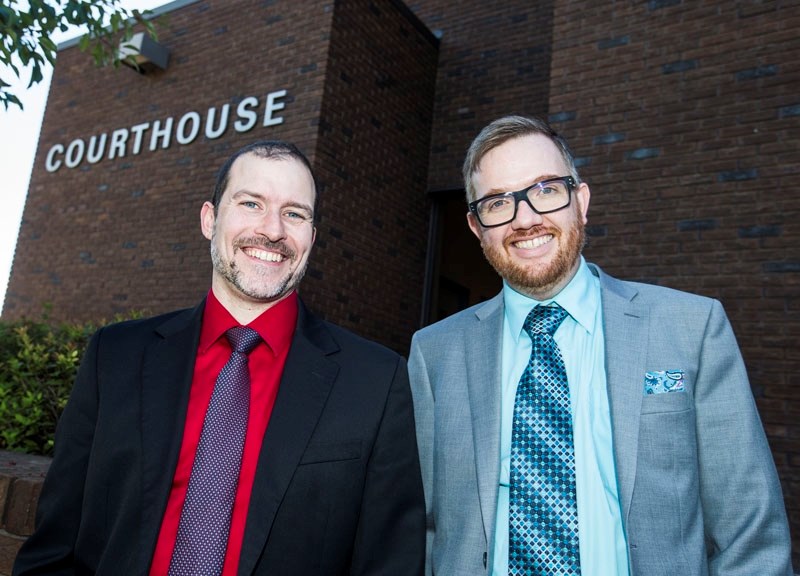A pair of St. Albert lawyers aren’t surprised Alberta received the lowest grade in the country for fairness and accessibility of the criminal justice system.
Two weeks ago the Macdonald-Laurier Institute, an Ottawa-based public policy think-tank, released its inaugural justice system report card.
The comparative study used available Statistics Canada data to assess and rank each province and territory’s criminal justice system. It found Alberta lacking in the areas of public safety, efficiency and fairness and access to justice.
Though criminal trial lawyers Brad Leebody and Dave Lloyd don’t agree with all the metrics used, they don’t disagree with the report’s conclusions.
Both lawyers often serve as duty counsel at the St. Albert Provincial Court. Over the past year they have noticed a growing number of individuals who want to plead guilty because they either cannot afford to pay a lawyer or to take the necessary time off to appear before the courts.
“That’s a problem. You have somebody who isn’t even reading the police report to see what they are being accused of saying ‘Just plead me guilty,’” said Leebody.
As duty counsel Leebody and Lloyd are tasked with providing free information, guidance and advice to unrepresented defendants. But with up to 40 clients at times, that can be challenging.
The provincial government has started addressing some of these inefficiencies through its Court Case Management project.
Since 2008, the multi-phase project has brought innovations, such as remote courtroom scheduling for defence counsel and an electronic case filing system for Crown prosecutors, to 15 communities throughout the province.
The initiative Leebody and Lloyd are most eager to see implemented in St. Albert is a case management office (CMO) – essentially a wicket manned by a clerk to deal with administrative and non-contested matters.
A CMO, along with other technological solutions, would improve efficiency and access in St. Albert in more ways than one.
It would give the accused or defence counsel the flexibility of appearing anytime within a specified time period, rather than sit in the courtroom for hours until their matter is called.
“Dave and I would be able to focus on those people who come to us saying I want to enter a guilty plea,” said Leebody. “I could do my job, which is to advise people about the criminal justice system.”
It would also free up a lot of time for the Crown to review files and judges to hear trials. Resolutions could be reached faster and court case lengths could be reduced.
According to a 2013 report titled Injecting a Sense of Urgency by the ADM Crown Prosecution Service setting up a CMO is comparable to adding a courtroom but without the additional infrastructure costs.
The 15 offices process between 6,500 and 7,000 criminal matters per month.
Expansion of the project is under consideration. Proposals for new CMOs will be considered within the next budget.
Assessments will consider proximity to CMOs within the same judicial district said Scott Sehested, public affairs officer for Justice Alberta.
Currently, only eight of the 11 judicial districts have CMOs.
The Edmonton judicial district was among the first to get one. The CMO at the Edmonton Provincial Court was established in 2010, two years after the program began.
Out of the 15 CMOs open throughout the province Calgary counts seven.




